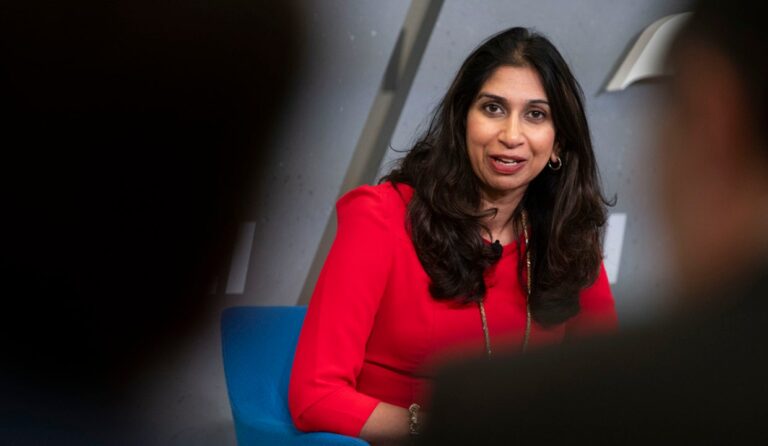Multiculturalism: UK Home Secretary Urges Change Amid Migrant Crisis
UK Home Secretary Suella Braverman recently addressed the challenges of Europe’s ongoing migrant crisis, proposing changes to asylum and refugee regulations. Braverman, a prominent immigration minister in the United Kingdom, emphasized her concerns about the failure of multiculturalism, labeling it a “misguided dogma” that has hindered the integration of foreign nationals in their adopted countries.
Speaking at the American Enterprise Institute in Washington, Braverman pointed to uncontrolled immigration, insufficient integration, and multiculturalism as a problematic combination for Europe. “Multiculturalism makes no demands of the incomer to integrate,” she noted, highlighting the critical issue.
According to Braverman, multiculturalism has fallen short because it allowed newcomers to exist in parallel societies within the host nation. This detachment has led, in some extreme cases, to actions aimed at destabilizing and jeopardizing the host society’s security.
The repercussions of this situation have become apparent both in Europe and the UK. Europe has grappled with a migration wave that began in 2015, saw a decrease during the COVID-19 pandemic, and has again surged over the past year.
While the UK is no longer part of the European Union, it faces its own challenges, particularly with the increasing number of migrants arriving in small boats across the English Channel from France. To address this, the UK has passed legislation to detain and deport illegal immigrants arriving by sea, including efforts to deport them to Rwanda, a move currently facing a legal challenge.
Braverman also questioned the relevance of the 1951 U.N. Refugee Convention in the modern era. She argued that asylum should not be granted solely based on factors such as gender or sexual orientation unless there is a “real risk of death, torture, oppression, or violence.”
In her words, “Where individuals are being persecuted, it is right that we offer sanctuary. But we will not be able to sustain an asylum system if, in effect, simply being gay, a woman, or fearing discrimination in your home country is sufficient to qualify for protection.” Braverman characterized the current situation as a clash between a new world and outdated legal models, labeling the migration surges as “an existential challenge” to the Western world.
This represents the latest effort in the West to gain more control over and limit the influx of migrants, particularly those who pass through multiple safe countries to reach their destination.
Meanwhile, the United States has faced its own challenges with a fresh surge of migrants. In September, more than 260,000 migrant encounters were recorded, marking a new monthly record. In response, the debate over border security and immigration continues to unfold.
In conclusion, Suella Braverman’s call for changes to address the migrant crisis and reassess multiculturalism’s impact resonates with broader discussions about immigration and asylum policies in the Western world.

